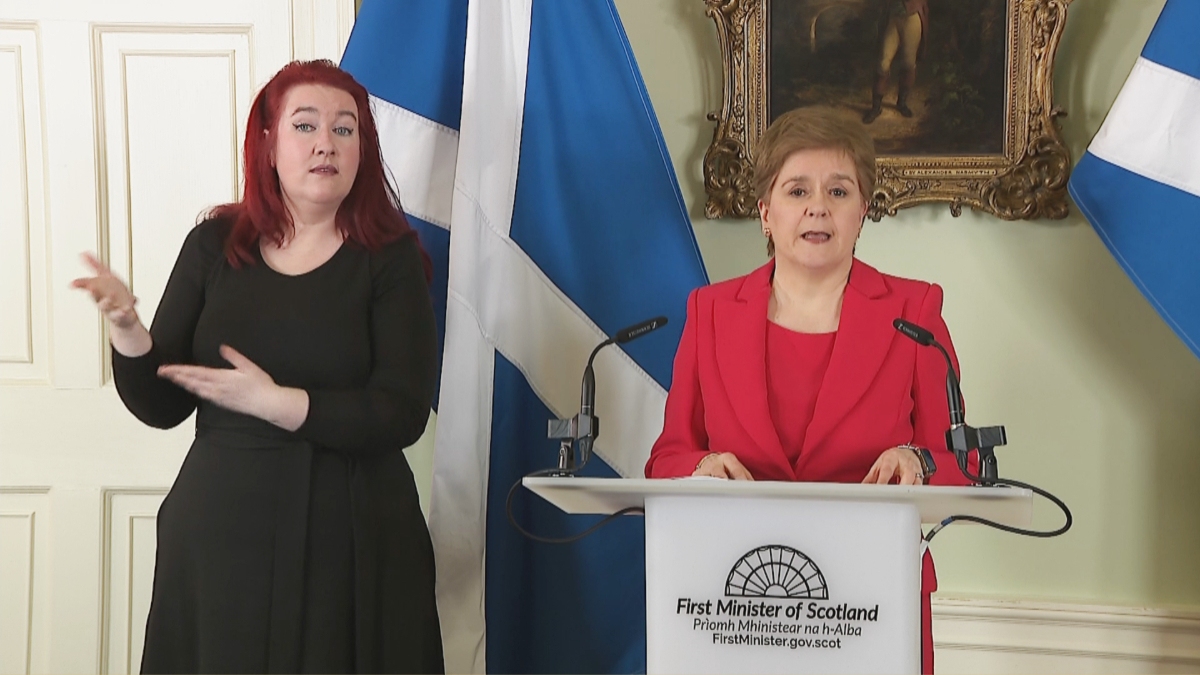Scotland would transition to the use of a new currency “as soon as practicable” after achieving independence from the United Kingdom under plans unveiled by Nicola Sturgeon.
Scotland would push for the creation of its own money, the Scottish Pound, monitored by a newly-established Scottish Central Bank, though said any transition would be “guided by criteria and economic conditions rather than a fixed timetable”.
“We propose that, on independence, Scotland would continue to use the pound Sterling for a period before moving to a policy of adopting a Scottish pound,” the plans state.
“While Scotland is still using sterling, many aspects of monetary policy would continue to be set by the Bank of England. However, an independent Scottish Central Bank would be established with oversight of monetary and economic conditions in Scotland and with responsibility for financial stability.”
Meanwhile, oil and gas revenues, valued at an estimated £20bn, would be used for “a targeted boost to infrastructure investment,” while also aiding the transition to a net zero economy.
Revenues from the North Sea fossil fuels industry will fund a £20bn investment in the first decade of an independent Scotland, Sturgeon said.
The “Building a New Scotland Fund,” launched in the event Scotland backs a Yes vote, would ensure the country “gets off to the best possible start” post leaving the United Kingdom.
The First Minister said Scotland would continue to use Sterling for a period in the event of a Yes vote, but would seek to “build a wellbeing economy that works for all”.
Sturgeon added that the current UK economic turmoil was “not a passing storm” and instead pointed to a “fundamentally flawed system,” adding it was now “glaringly obvious [the UK] does not offer economic strength and stability or financial security”.
The Scottish Conservatives said it was “hard to see what the point of this paper launch was, given that it fails to address the fundamental questions that have always undermined the economic case for independence”.
Liz Smith, the party’s shadow finance secretary, said: “The SNP are still unable to provide details about how our currency would work, who would pay our pensions, and how we would cope with the potentially devastating effects of a hard border with the rest of the UK.”
Responding to the First Minister’s paper, Scottish Liberal Democrat leader Alex Cole-Hamilton said: “Nicola Sturgeon’s economic plan is a dangerous recipe for years of chaos.
“When it comes to breaking up the UK no price is too high and no amount of disruption too painful for the SNP.
“The islanders waiting for ferries, one in seven Scots on NHS waiting lists and parents who believed education was the number one priority have already paid the price for the SNP’s fixation. Nicola Sturgeon wants mortgage holders, pensioners and taxpayers to be next.
“The solution to Tory chaos isn’t to double it with independence, it’s to get Truss and the Tories out of government and bring new hope to the whole United Kingdom.”
It came as the FM outlined her economic case for Scotland leaving the union.
The paper, the latest in the “Building a New Scotland” series, also proposes rejoining the European Union and “redesigning” the country’s energy market to provide “secure and reliable low cost energy”.
She said the prospectus would “openly and frankly” address issues like currency, debt, deficit and trade.
It stated that Scotland had a “moral duty” to take on a portion of UK debt, but that Holyrood would push for a “fair deal” on assets.
The supreme court is currently considering whether Scotland has the power to host a referendum on leaving the UK.
In the previous ballot in 2014, Scotland voted to remain in the union by a margin of 55% to 45% but the FM wants a new vote to take place in October next year.
“The consequences of all of this for Scotland – if we stay part of the Westminster system – will be damaging and long lasting,” the FM wrote in her foreword.
“We believe there is a better way. A way that meets the aspirations of the people of Scotland: taking economic powers into our own hands, so we can tailor policy to Scotland’s needs; build greater equality and wellbeing; and become more resilient to, and, when necessary, better able to respond to, global challenges such as the current energy price shock.
“This won’t happen overnight, or without hard work. Recent developments in the UK economy and financial markets underline the imperative of acting with responsibility, careful consideration and good planning, and remind us of the real-life consequences of not doing so.”
Follow STV News on WhatsApp
Scan the QR code on your mobile device for all the latest news from around the country





























